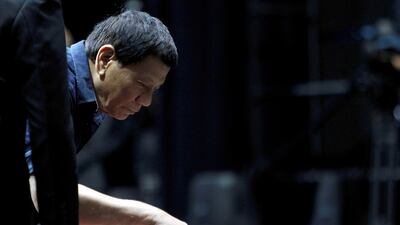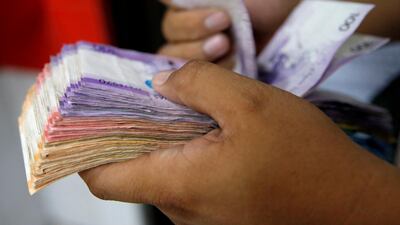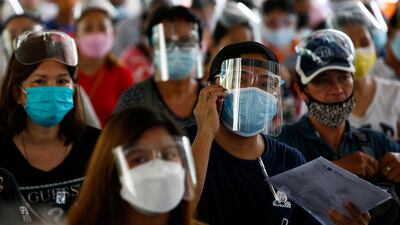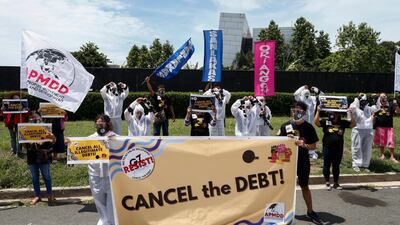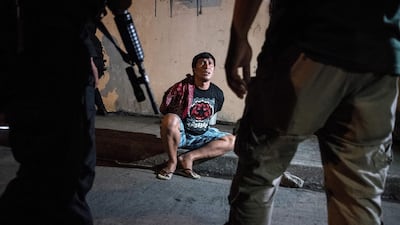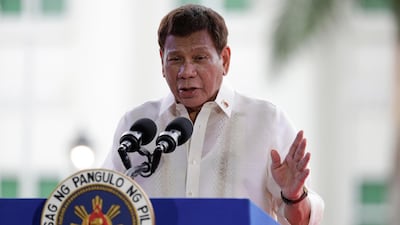The Spanish novelist George Santayana once famously cautioned: “Those who cannot learn from history are doomed to repeat it.” But in Spain’s former Asian colony, the Philippines, it seems even learning from the present can be a big ask.
The country is known for many things, including a cosmopolitan culture and its deep pool of talent and human capital. It is also blessed with a century of experience in democracy. But the Philippines has never elected democratic leaders whose vision achieved global renown. Its history has no Franklin D Roosevelt or Winston Churchill, who masterfully mobilised their nations in the darkest hour. Nor does it have the likes of Singapore’s Lee Kuan Yew, who almost singlehandedly transformed a former mosquito-ridden colonial outpost into one of the world’s most prosperous city-states.
Instead, the Philippines’ political landscape has remained largely the domain of a deracinated elite. But whenever Filipinos opted for authoritarian leaders, in a bid to accelerate national development, they ended up losing both their freedom and fragile prosperity.
During his two-decade reign, Ferdinand Marcos oversaw systemic corruption and cronyism, devastating conflicts across the Philippines’ peripheries. His family’s decadence was so prolific and swaggering that his wife Imelda coined the term “imeldific” to describe it. Amid general misery in the early 1980s, Mrs Marcos boasted 2,700 pairs of designer shoes.
Even though Marcos was toppled in a popular revolution back in 1986, ordinary Filipinos are expected to pay off loans he took from western governments, a large chunk of which was siphoned off by state cronies, up until 2025.
In stark contrast, Marcos’s contemporary in South Korea, General Park Chung Hee, transformed a once-impoverished and war-stricken nation into a leading industrial and technological power.
The record of current President Rodrigo Duterte, who once described Marcos as the Philippines’ “best president ever”, has been far from encouraging. In addition to a years-long drug war that has claimed thousands of lives without any major improvement in public order, the country has had one of the worst Covid-19 outbreaks in Asia and one of deepest economic contractions on earth in the past year, though there are some signs of recovery.
And yet, Mr Duterte remains deeply popular, while members of the Marcos family are back in positions of power. In fact, the latest surveys show that that no less than the namesake son of the former leader, Ferdinand “bong bong” Marcos, Jr, and Mr Duterte’s daughter, Sara Duterte, are the top contenders for next year’s presidential elections. So, what explains voters’ penchant for the heirs of their country’s strongmen, who have turned a most promising nation into one that is struggling so badly?
Over the past decade, some of the world's flagship democracies have been rocked by the rise of authoritarian populism. The driving force behind this disruptive political movement, as the historian Niall Ferguson notes, is a combination of economic insecurity for working-class voters and a greater influx of immigrants perceived to be in competition with them.
But these factors are largely missing in post-colonial nations like the Philippines, which has turned into a bastion of what Yu-tzung Chang, a political scientist at Taiwan National University calls "authoritarian nostalgia".
Back in 2013, the World Bank described the Philippines as “Asia’s rising tiger”. Up until the Covid-19 pandemic, it experienced a decade of rapid economic growth, among the fastest on the planet.
And immigration is a non-issue in the Philippines, which is proud of its multi-racial heritage and, above all, itself a top global exporter of human capital.
Three key factors explain the resurgence of populist figures in Philippine politics. First is that even the most well-intentioned Filipino leaders have failed to address the stubborn grip of a narrow elite on the country’s political and economic institutions. Former Filipino President Benigno Aquino, Mr Duterte’s predecessor, oversaw unprecedented reforms, including anti-corruption initiatives that targeted high-level officials.
And yet, during Mr Aquino’s tenure three quarters of GDP growth was concentrated in the hands of only 40 families, the highest level of wealth concentration in Asia. Meanwhile, 70 per cent of all elected positions in the Philippine legislature have been dominated by political dynasties, which rule the bulk of provinces in the country.
The second factor is chronic factionalism among centrist-liberal statesmen, who not only refused to join forces in the last election, but even viciously fought against one another. As a result, political outsiders such as Mr Duterte needed only to win a larger plurality of votes.
The third factor is the inability of reformist administrations to keep up with growing social demand for improved public services. In fact, half a century ago, the late political scientist Samuel Huntington presciently warned that rapidly growing nations are most suspectable to authoritarian takeover amid the "decay of the administrative organization". This was clearly the case under Mr Duterte's reformist predecessors, who enraged voters amid constant delays in public infrastructure projects and the ensuing traffic congestion across major Philippine cities.
The upshot of these three factors is generalised cynicism and democracy fatigue. It should come as no surprise, therefore, that polls show that close to 80 per cent of Filipinos are willing to welcome authoritarian leaders who can gets things done.
In fact, throughout the years, a majority of Filipinos have expressed their openness to dispensing with elections altogether in favour of decisive leaders like Singapore’s Lee Kuan Yew.
No wonder then that the Philippines has gradually transformed into what journalist Fareed Zakaria has described as an “illiberal democracy”, whereby popular elections go hand in hand with authoritarian leadership. And the 2022 election in the Philippines is shaping up as titanic showdown among the scions of the Duterte and Marcos dynasties.
Sara Duterte has repeatedly denied any plans to become her father’s successor, while Mr Marcos, Jr is keeping his cards close to his chest by simply suggesting he is running for a top office next year. Nevertheless, supporters of the President have launched the Duterte Parin Movement (“Still Duterte”), which advocates for Ms Duterte’s presidential succession. And Mr Duterte himself is contemplating running for the vice presidency, likely under his daughter or a trusted aide.
Having lost the last vice-presidential race by the slimmest margins, the presidency would be a natural ambition for Mr Marcos, Jr. And there is an element of historical urgency, since his success would allow his nonagenarian mother to return to the presidential palace in an ultimate moment of vindication.
The two sides may opt for a joint ticket. An intimate and cordial meeting between Mr Marcos, Jr and Ms Duterte last month hinted at the possibility. Such a team would be close to invincible. And should they choose to run separately, theirs will be the defining clash of the 2022 elections. Either way, they can count on legions of supporters who have lived through so much history but, to borrow the words of the 18th-century French diplomat Charles-Maurice de Talleyrand-Perigord, have “learned nothing and forgotten nothing”.
Richard Javad Heydarian is a professorial chairholder in geopolitics at Polytechnic University of the Philippines
